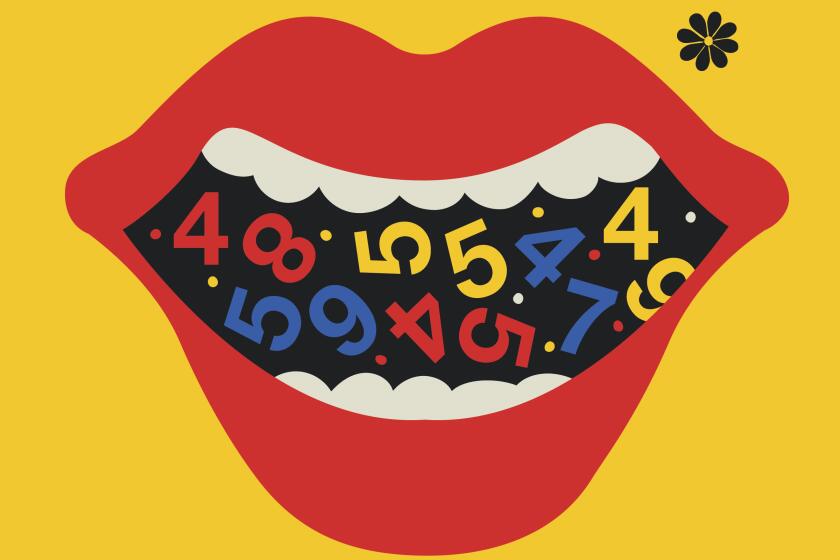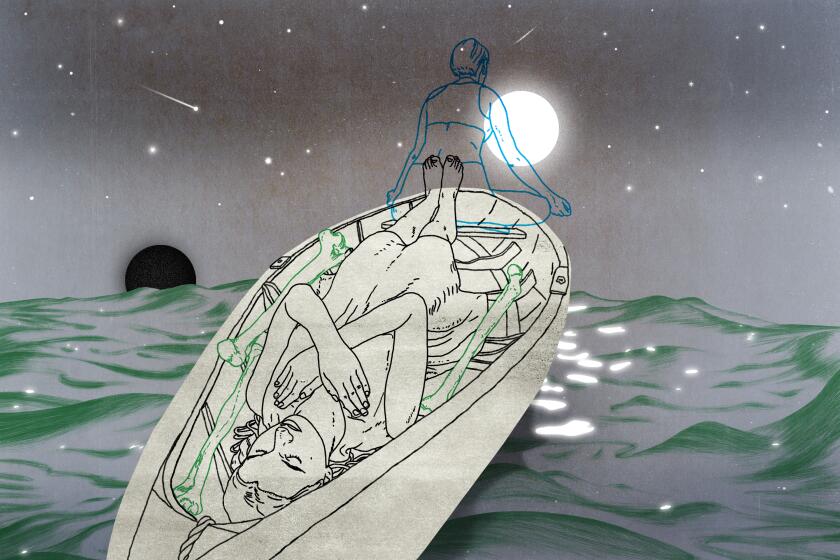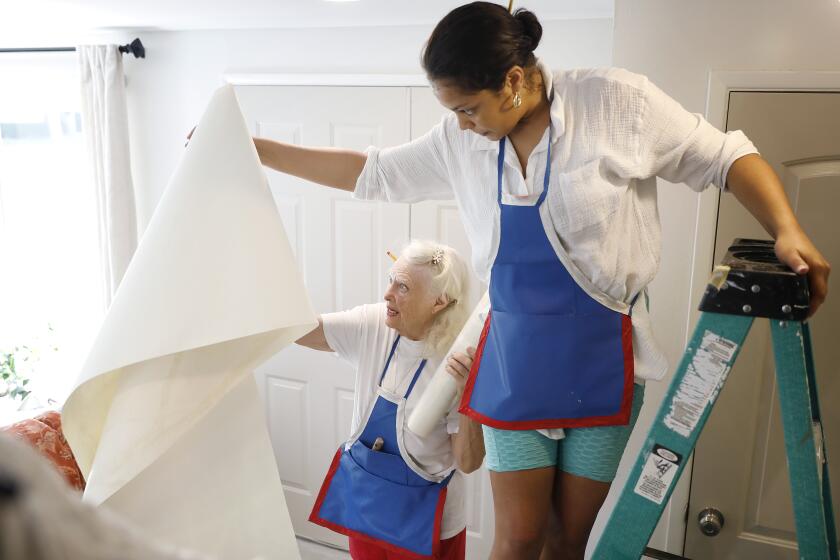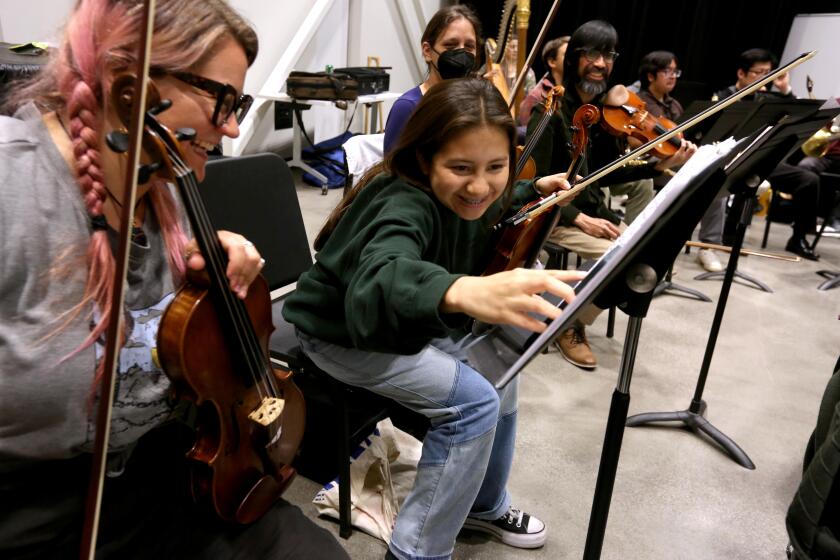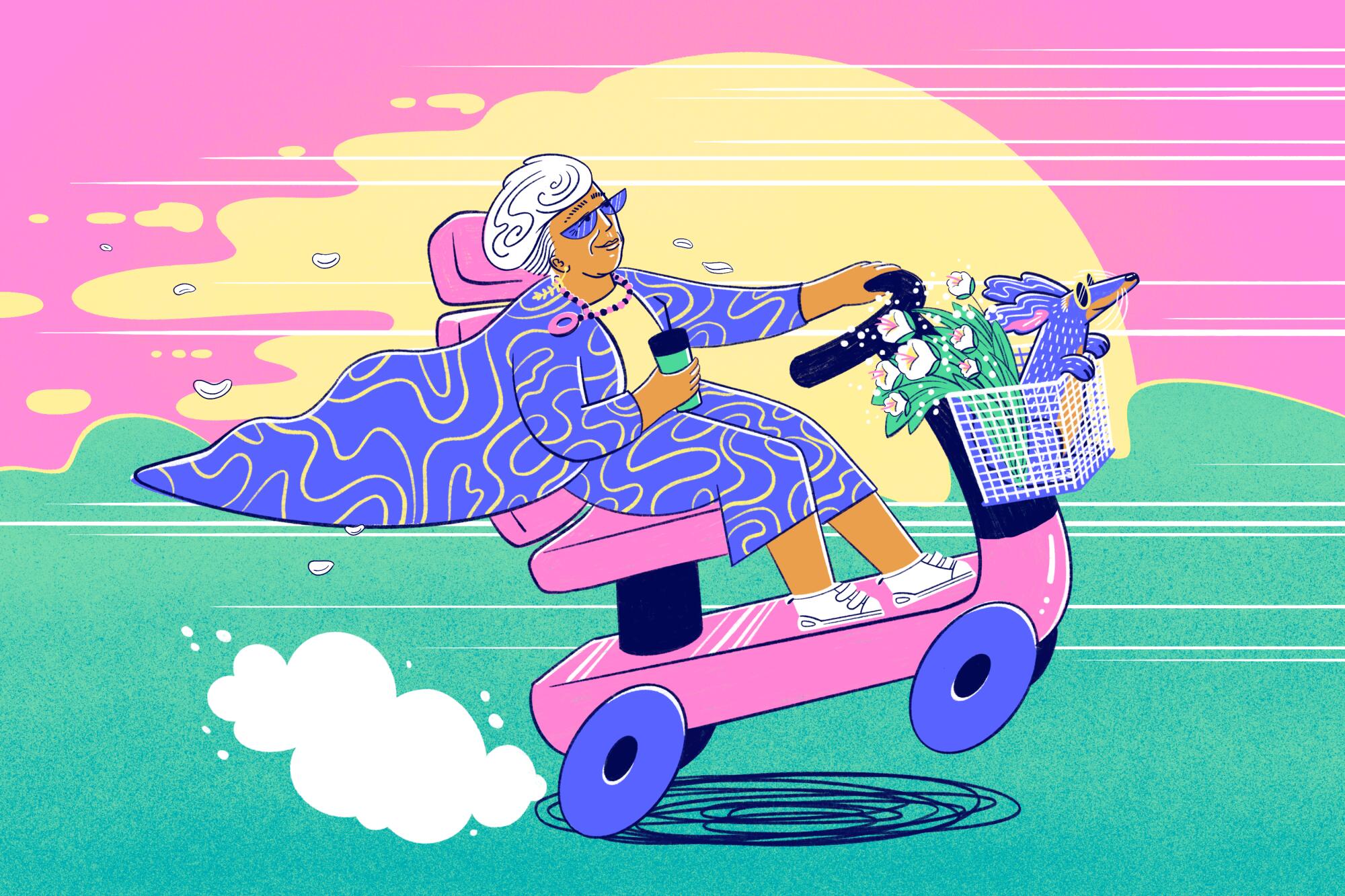
Connie Zweig first encountered her inner ageist on a cloudless spring day in Santa Monica about seven years ago.
The author and retired psychotherapist was enjoying lunch at her favorite vegan restaurant, Real Food Daily, when an old woman walked in and sat at the table next to her. The woman’s clothes were worn and tattered, her fingernails dirty, her hair unkempt. As she began to order free samples of food, presumably because she couldn’t afford to pay, Zweig noticed a feeling of disgust rising within her.
This is uncomfortable. I’ll never be like that. I feel sorry for her.
Then she caught herself, took a breath and stopped. For decades Zweig had helped people interrogate the part of their minds outside of their conscious awareness — what the 20th century psychologist Carl Jung called “the shadow.” Now, here was her own shadow raising its head.
“The voice in myself was attributing to her the traits I couldn’t look at in myself,” said Zweig, who was in her late 60s at the time. “I was getting old, I was getting more needy, more slow. I could risk poverty if something terrible happened.
“And that was shocking to me,” she said. “That after all this work on my own personal shadow, I still had an ageist part.”
He was clear that if we did end up together, I’d have to move to Los Angeles. That wasn’t a dealbreaker. I’d leave New York for true love.
If you’ve ever yanked a gray hair, made a joke about our aging political leadership or shaved a few years off your age in conversation, then you probably have an inner ageist too. Most of us do. This is the deep part of ourselves that has us convinced that becoming old makes us useless, worthless, ugly and irrelevant. It’s also the part that leads some of us to spend thousands of dollars each year to fight any sign of getting older with personal trainers, fillers, botox and a staunch refusal to slow down.
But the battle against age is ultimately unwinnable. No matter how old you are, aging is coming for you too. (Consider the alternative.) As Zweig says: “Aging is the one thing we all have in common.”
After her encounter with the woman in the cafe, Zweig embarked on a years-long exploration of the inner ageist, how to move past its internalized biases and discover the hidden treasures of getting old — especially in later life. The result is her book “The Inner Work of Age: Shifting From Role to Soul.”
“We thought legislation would eliminate racism, but we’ve seen that it did not succeed,” Zweig said. “Implicit bias requires both social justice action and what I call ‘shadow work’ to uproot unconscious internal images and attitudes like the inner ageist.”
Zweig, now 74, talked to The Times about where the inner ageist comes from, and how we can begin to recognize it in ourselves and ultimately release it.
“Our unconscious beliefs and biases about age shape how we experience it,” she said. “But that can change.”
This interview has been lightly edited and condensed for length and clarity.
For those of us who want to reorient how we feel about aging, where do you suggest we start?
All through the lifespan the inner ageist is growing right along with us, so you can begin to do this work at any age.
What are you saying to yourself about growing older? Can you catch it like I caught my inner dialogue in the restaurant when I was being judgmental and ageist? Can you catch that inner voice — or the feeling that goes with it — in the context of growing older?
Maybe you see an older stranger — what do you say to yourself? Or you see a relative who has aged — what do you say to yourself? Or you notice a change in yourself — what do you say to yourself and what do you feel about it? That kind of shadow awareness can help you begin to tune into yourself more and then notice the effect it’s having on you.
Emotionally, socially, in terms of your health, your relationships, what are the consequences of not attending to that inner voice and rooting it out so you can attend to it more deeply?
A death meditation may sound morbid, but often it’s a celebration of life. At a Pasadena shop, you can experience a moving death meditation for yourself.
Knowing that aging does come with diminishing health, time and energy, how can we feel less afraid of it?
Those are legitimate concerns because those are legitimate challenges. It’s true that grief and loss are part of the aging process and they’re built into it. And part of my work with the shadow is to face what I call mortality awareness. Many people deny death and that denial is building a charge in us around illness and death.
But when we are aware we have limited time, this time becomes so precious, and we want to spend it differently, and we want to prioritize and we want to really care about what is important to us. That changes everything.
Fighting the physical signs of aging is expensive. Why are so many of us spending our money this way?
If our identity is rooted in how we look and that’s all we know, then we are going to do everything we can to prop up our self-image for as long as we can. It’s our only value. If our identity is rooted in what I call “the doer” — what we do, what we produce, how we succeed — then we are going to keep “doing” for as long as we can. So if we can begin to learn how to cultivate an inner life, then we’re going to focus more on that and less on how we look and what we do.
Reita Green, a former dancer and actress, has become best friends with wallpapering partner Beverly Pate, who’s 58 years her junior.
I’ve heard friends say, ‘Women are not allowed to age.’ What do they mean when they say that?
If you begin to watch for how the media portrays older adults you’ll start to see an answer to that. I grew up in the ’50s and ’60s watching “All in the Family” where the husband, Archie Bunker, had contempt for his wife as she aged and he was mean and critical and used humor often to put her down. We internalized those feelings and beliefs and attitudes.
An older person who is a really positive influence, like a grandparent, an aunt, a teacher or a mentor, can be an antidote to the negative media portrayals or the negative comments people make. If you don’t have an antidote, then you are just going to internalize the negativity.
I have a friend whose brother sent her a walking stick when she turned 25. What is that about?
We encounter the shadow or unconscious in many ways. One way is in dark humor. If you listen to comedians you’ll get uncomfortable. You’ll start to feel kind of squishy because they carry some part of the shadow that is not normally spoken aloud. There are a lot of Hallmark cards and birthday cards that have this edge to them because they make people laugh. But they do it at a price. They do it at the cost of expressing, in this case, ageism, but it could be any implicit bias. So that humor can be uncomfortable.
It’s more than music. This Los Angeles orchestra bridges cultural and generational gaps and creates a deep sense of community
You’re in your 70s. What does accepting your age look like for you?
We can’t prescribe what this looks like for anyone else. For people in really difficult financial situations it’s a whole different thing. Some of them have to keep working even when they’re ill, even when they would rather stop working. There’s also cultural differences around the role of the family with elders.
For me, I’ve been working since I was 19, and I’m ready for a different pace now. I’m ready to spend more time in meditation, in the inner world, spend more time with my husband, and our grandkids, which we haven’t been able to do because we’re so busy. I’m looking at different kinds of activism as well as different kinds of spiritual practice.
But the deeper issue for me is letting myself step into the unknown so that I can see what calls to me. Because as long as I’m this busy, I’m not going to hear the next call.
More to Read
Sign up for The Wild
We’ll help you find the best places to hike, bike and run, as well as the perfect silent spots for meditation and yoga.
You may occasionally receive promotional content from the Los Angeles Times.
